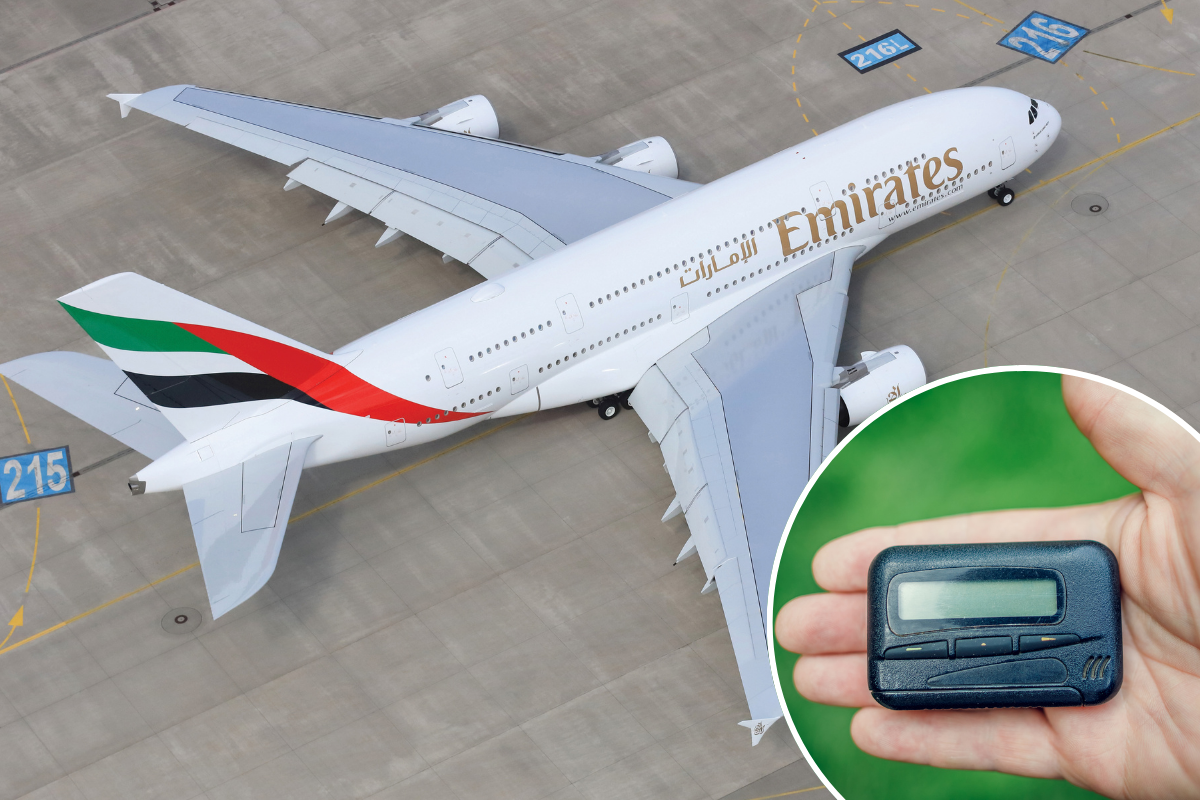
Emirates airline has announced that all passengers traveling on flights to and from its hub in Dubai can no longer carry pagers or walkie-talkies in either their checked luggage or in their hand luggage.
The new rule comes just a couple of weeks after a deadly intelligence operation that targeted Lebanon’s Hezbollah militia group with its own communication devices.
Experts believe that pagers recently acquired by Hezbollah in a deliberate attempt to mitigate the risk of external influence were compromised during the manufacturing process, and a type of explosive known as PETN was hidden beside the battery.
On September 17, the explosives were remotely detonated, killing and seriously injuring hundreds of Hezbollah supporters across Lebanon. Several days later, a separate remote attack on Hezbollah’s walkie-talkie network also maimed multiple people.
Although there has been no further attack on Hezbollah using this method, there is no way of knowing whether other communication devices, including existing pagers and walkie-talkies, have also been compromised and could still be in circulation.
In the immediate aftermath of the attacks, Lebanon’s civil aviation regulator banned passengers from carrying pagers and walkie-talkies on flights departing Beirut’s Rafic Hariri International Airport, although the ban wasn’t widely copied across the region.
On Friday, however, Emirates posted a new travel update which warned: “All Passengers travelling on flights to, from or via Dubai are prohibited from transporting pagers and walkie talkies in checked or cabin baggage.”
The update continued: “Such items found in passengers’ hand luggage or checked baggage will be confiscated by Dubai Police.”
It’s not known why Emirates and local officials in the UAE have decided to enforce this ban now.
Emirates has been forced to suspend flights to a number of destinations across the Middle East as a result of the deteriorating security situation and the risk that the region could be on the cusp of a major conflict between Israel and Iran.
The carrier says it plans to resume flights to Amman, Jordan, from October 6, while flights to both Iraq and Iran won’t be restarted until October 8 at the earliest. Flights to Lebanon will, however, remain suspended until October 15 at the earliest, while all flights to Tel Aviv have been halted until further notice.
Related
Mateusz Maszczynski honed his skills as an international flight attendant at the most prominent airline in the Middle East and has been flying ever since... most recently for a well known European airline. Matt is passionate about the aviation industry and has become an expert in passenger experience and human-centric stories. Always keeping an ear close to the ground, Matt's industry insights, analysis and news coverage is frequently relied upon by some of the biggest names in journalism.







